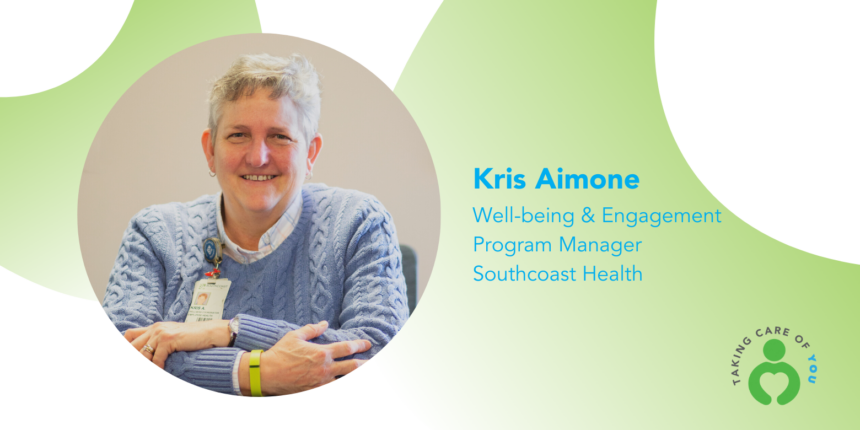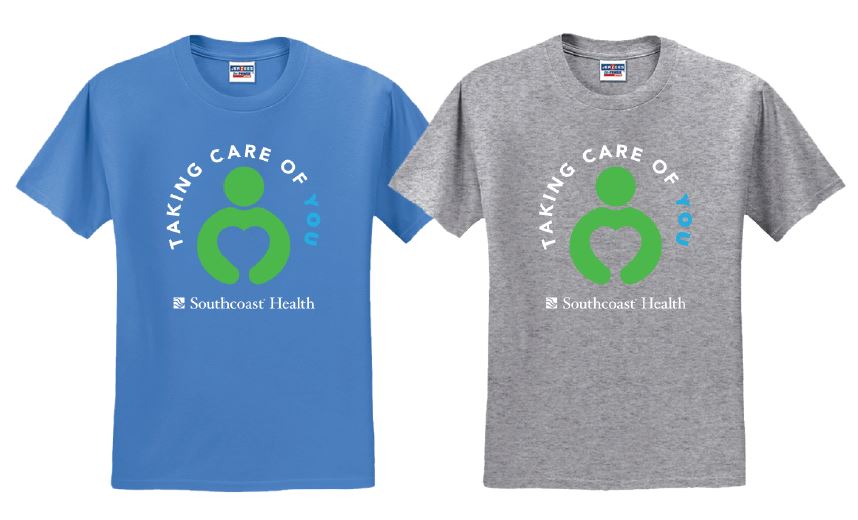Health+ Wellness
Employee well-being is a Southcoast Health priority

A new well-being platform is available to all staff, providers and spouses
Southcoast Health is taking a new, refocused and refreshed approach to supporting employees with their well-being practices. “This more expansive approach addresses all facets of a person’s overall well-being,” said Barbara Schmidt, Southcoast Director of Organizational Culture and Engagement.
“When Covid-19 started, we renamed our well-being program to reflect new needs. The ‘Taking Care of You’ well-being program encourages everyone to take care of themselves by taking advantage of programs it offers,” she said.
One new addition to the Taking Care of You program is the Taking Care of You powered by Limeade well-being platform and is available to all staff, providers and spouses.
“Practicing self-care is essential more now than ever, considering the pandemic we have weathered during the past two years,” said Kris Aimone, Southcoast’s Well-being and Engagement Manager. “Our focus and top priority are to encourage and support employees to take care of their own well-being. The Limeade platform is a great place to start doing just that.

Once participants have registered on the Taking Care of You powered by Limeade platform, they complete a confidential Well-Being Assessment. This allows their experience to be customized for their well-being interests and goals. Participants will see activities that are tailored to their top strengths and opportunities for improvement. All full time, part time and per diem employees and providers are offered incentives as well to participate, including a free “Taking Care of You” T-shirt just for taking the assessment.
Aimone recently took the Limeade assessment herself and received recommendations to read food labels, stretch her back, and track her steps and eating. Participants also can find useful articles on many topics, including how to avoid impulse shopping, the power of naps, and snacking for better health.
“Now we are talking more about well-being in every facet of a person’s life and taking a more whole-person approach. It’s more than just nutrition, it’s about investing in ourselves – in all aspects of our well-being,” Aimone said.
Aimone has adapted other ‘Taking Care of You’ well-being offerings as employee needs evolved since the first COVID-19 case presented itself at Southcoast two years ago. Online yoga classes, for instance, replaced on-site yoga classes.
The platform also promotes other Southcoast programs under the Taking Care of You umbrella, such as internal and external counseling services for employees and providers, as well as programs offered through the Southcoast Health Plan such as the Diabetes Care Management, Personal Health Management programs and others to help employees with multiple health issues manage their care.
“Businesses and non-profit organizations started focusing on employee wellness as an effort to lower the cost of providing employee health insurance,” said Lauren De Simon, Southcoast Sr. Vice President and Chief Human Resources Officer.
“But it’s so much more now,” she said. “We want employees to balance work, life and health; to show up healthy and ready to go. And to feel good about themselves. We want them to have a positive outlook on their lives and work.”
The COVID-19 pandemic has underscored the importance of staff well-being, especially in health care. The demands, duration and frequent tragedy of the worst public health crisis in a century have been grueling for health care providers and staff.
A Taking Care of You Committee, comprising representatives from across the system, meets monthly to plan new initiatives. And physicians, nurse practitioners and physician assistants take part in a Provider Well-being and Engagement Committee.
Moving forward, there are plans to add rounding at different locations to check in and connect with employees and share the opportunities to support and enhance well-being that are available to them.
“We care about our employees and providers, our Southcoast family, and we are looking to the future,” Aimone said. “This will still be important even after the pandemic. When we invest in ourselves, we can make a difference in so many other lives. That’s nowhere truer than in health care.”
